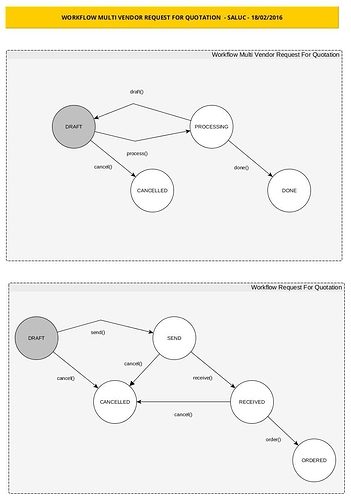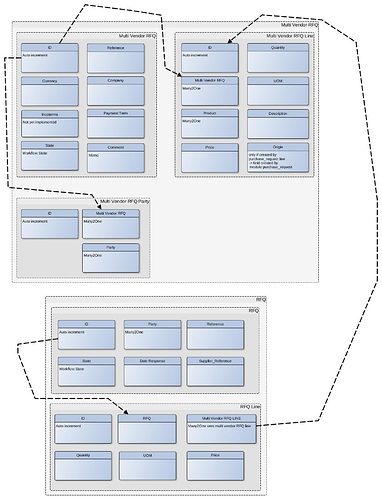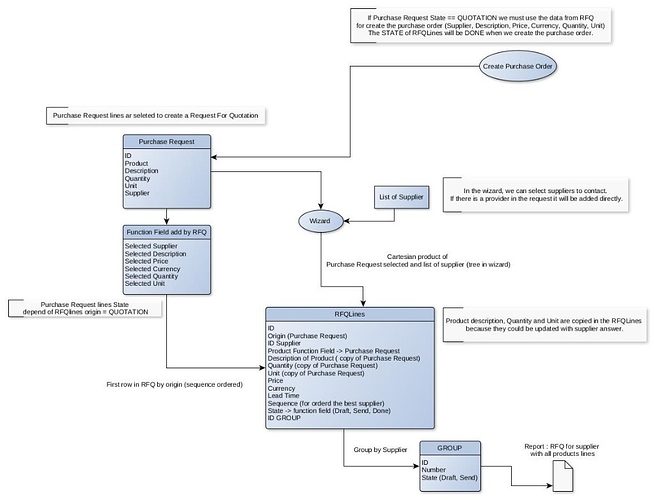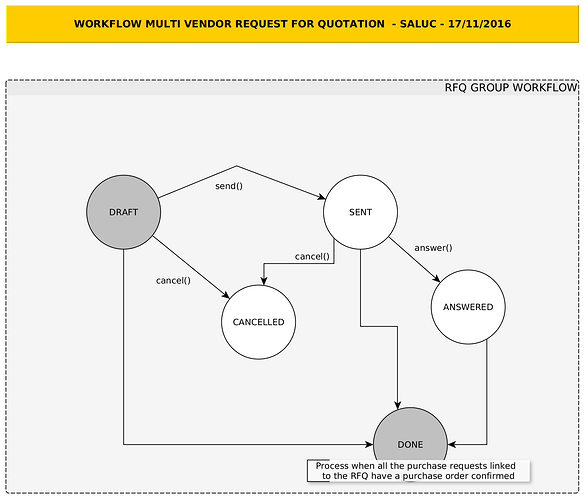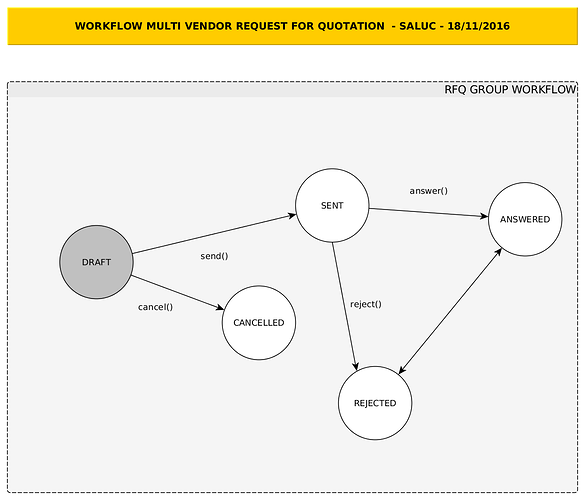Here, at Saluc SA, we are very interested in such development.
First of all, we are beginners with this new way to develop with a community. And then, it’s not so easy to write down our ideas and explain them in english but we’ll try to do our best.
We suggest a more general proposal.
We thought a 'Multi-Vendor RFQ “ document that would generate multiple RFQ document in order to group several RFQ with a common reference to the Multi-Vendor RFQ id.
Multi-Vendor RFQ, is an entity where you select one or more suppliers (Multi-Vendor RFQ Party), select one or more products (price, quantity, uom, description), payment conditions, shipping instructions, currency …
- RFQ should not only be created by the module “Purchase Requests”. Purchase department should be able to create “Multi Vendor RFQ” manually (not only lines from purchase request). Also we can select one or more lines in Purchase Request module to generate a “Multi-Vendor RFQ” in state draft.
- RFQ should be for multiple products (especially if we are working with a Purchase Requisition module who generate Purchase requests): we could ask in a purchase requisition for products that must be ordered together, so each RFQ sent to suppliers should have multiple lines of products. (considering the original Purchase Requisition created by user is conceivable : you don’t order printer toner with toilet paper, but you can ask for two hard drives and one keyboard…
- The RFQ must include the conditions of payment and shipping because it is very important for the quotation and choice of supplier.
- The purchase order is not multi-currency, so we don’t use multi product line with different currency in the same ‘Mutli vendor RFQ’.
- We need to track the state of “Multi Vendor RFQ” (processing of the request) but also the state of each RFQ generated by this “Multi Vendor RFQ” (track all response of suppliers)
- We need to keep the answer of all RFQ supplier. A supplier could submit another quantity, unity or price.
RFQ’s are generated by this “Multi-Vendor RFQ” module: an RFQ document
by supplier with a Many2Many field between the ‘Multi Vendor RFQ’ lines
and the RFQ lines.
Each RFQ is sent to supplier (printing, email,…) then we are waiting for the answer. When we received an answer, we write reception date, price, quantity, uom in the RFQ
Then we choose which RFQ is/are the best and we generate a purchase order('s) with informations provided by the supplier. Others RFQ are cancelled (manually).
Workflow Multi-Vendor RFQ: Draft, Processing, Done, Cancelled
With the transition ‘processed’ between state Draft and Processingn we thought create a RFQ by supplier (cartesian product of MultiVendor RFQ lines and party selected on MultiVendor RFQ).
Workflow RFQ: Draft, Send, Received, Ordered, Cancelled.
